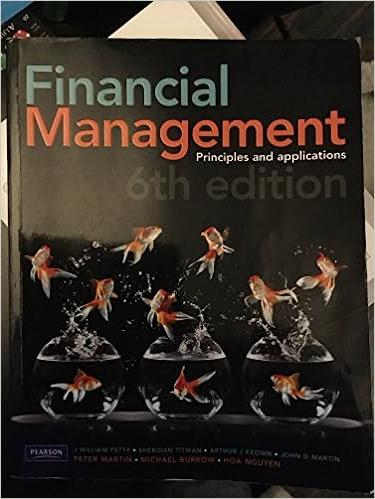Answered step by step
Verified Expert Solution
Question
1 Approved Answer
Kingbird Company is considering the purchase of a new machine. The invoice price of the machine is $127,000, freight charges are estimated to be $3,100,
 Kingbird Company is considering the purchase of a new machine. The invoice price of the machine is $127,000, freight charges are estimated to be $3,100, and installation costs are expected to be $5,200. The salvage value of the new equipment is expected to be zero after a useful life of 4 years. Existing equipment could be retained and used for an additional 4 years if the company does not purchase the new machine. At that time, the equipment's salvage value would be zero. If the company purchases the new machine now, it would have to scrap the existing machine. Kingbird's accountant, Donald Robinson, has accumulated the following data regarding annual sales and expenses with and without the new machine: 1. Without the new machine, Kingbird can sell 10,400 units of product annually at a per-unit selling price of $100. With the new machine, the number of units produced and sold would increase by 25%, and the selling price would remain the same. 2. The new machine is faster than the old machine, and it is more efficient in its use of materials. With the old machine, the gross profit rate is 28.50% of sales, whereas the rate will be 30% of sales with the new machine. 3. Annual selling expenses are $166,000 with the current equipment. Because the new equipment would produce a greater number of units to be sold, annual selling expenses are expected to increase by 10% if it is purchased. 4. Annual administrative expenses are expected to be $104,000 with the old machine, and $116,000 with the new machine. 5. The current book value of the existing machine is $42,000. Kingbird uses straight-line depreciation. 6. Kingbird management has a required rate of return of 15% on its investments and a payback period of no more than 3 years. (a) Calculate the annual rate of return for the new machine. (Round calculations in percentages to 2 decimal places, e.g. 15.25\% and final answer to 1 decimal place, e.g. 15.2\%.)
Kingbird Company is considering the purchase of a new machine. The invoice price of the machine is $127,000, freight charges are estimated to be $3,100, and installation costs are expected to be $5,200. The salvage value of the new equipment is expected to be zero after a useful life of 4 years. Existing equipment could be retained and used for an additional 4 years if the company does not purchase the new machine. At that time, the equipment's salvage value would be zero. If the company purchases the new machine now, it would have to scrap the existing machine. Kingbird's accountant, Donald Robinson, has accumulated the following data regarding annual sales and expenses with and without the new machine: 1. Without the new machine, Kingbird can sell 10,400 units of product annually at a per-unit selling price of $100. With the new machine, the number of units produced and sold would increase by 25%, and the selling price would remain the same. 2. The new machine is faster than the old machine, and it is more efficient in its use of materials. With the old machine, the gross profit rate is 28.50% of sales, whereas the rate will be 30% of sales with the new machine. 3. Annual selling expenses are $166,000 with the current equipment. Because the new equipment would produce a greater number of units to be sold, annual selling expenses are expected to increase by 10% if it is purchased. 4. Annual administrative expenses are expected to be $104,000 with the old machine, and $116,000 with the new machine. 5. The current book value of the existing machine is $42,000. Kingbird uses straight-line depreciation. 6. Kingbird management has a required rate of return of 15% on its investments and a payback period of no more than 3 years. (a) Calculate the annual rate of return for the new machine. (Round calculations in percentages to 2 decimal places, e.g. 15.25\% and final answer to 1 decimal place, e.g. 15.2\%.) Step by Step Solution
There are 3 Steps involved in it
Step: 1

Get Instant Access to Expert-Tailored Solutions
See step-by-step solutions with expert insights and AI powered tools for academic success
Step: 2

Step: 3

Ace Your Homework with AI
Get the answers you need in no time with our AI-driven, step-by-step assistance
Get Started


